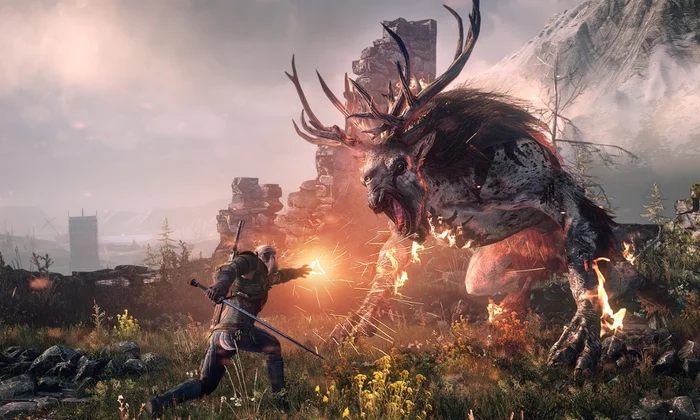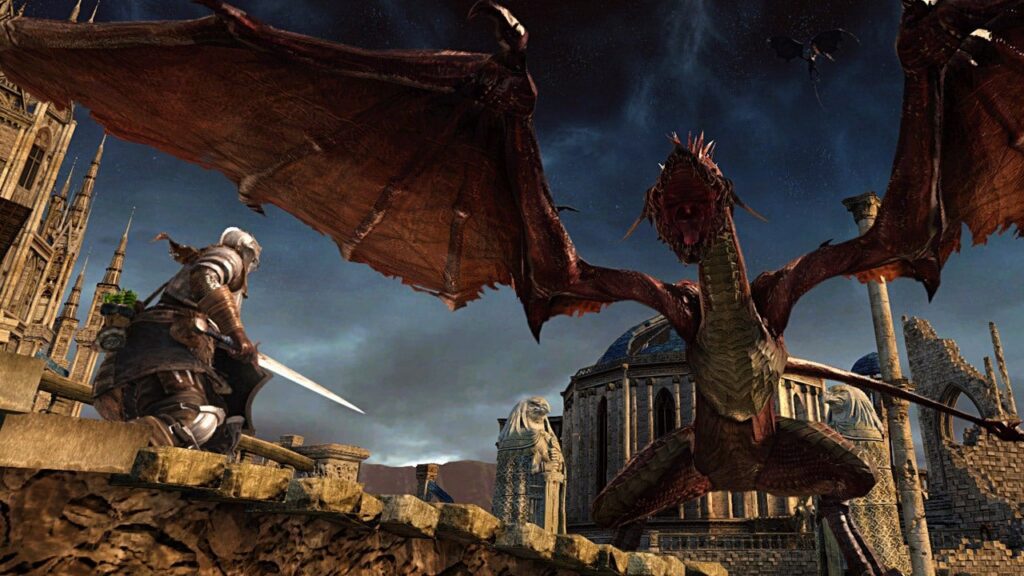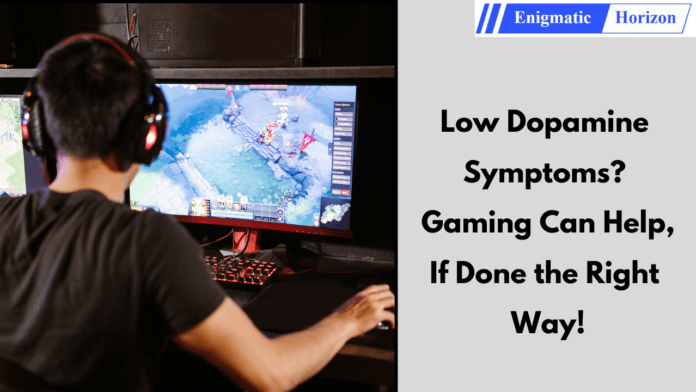Here, we shall learn how dopamine works and how can gaming improve dopamine levels and even change your perspective towards life…
-Robin Bhuyan
In a world overwhelmed by distractions, constant pressure, and the pursuit of instant gratification, many of us find ourselves struggling to feel truly motivated or fulfilled. We often search for ways to boost our mood, focus, and drive—but sometimes, the solution is simpler than we think. What if the answer does not always lie in traditional methods like self-help books or productivity hacks, but in the immersive worlds of video games? Understanding how dopamine works and how gaming can improve dopamine levels could completely transform your perspective on gaming and mental well-being. Games like The Witcher 3 and Persona 5 do more than just entertain—they enhance your brain’s reward system, helping you improve motivation, patience, and emotional resilience. And how gaming can improve dopamine levels is clearer than ever in these games.
How Dopamine Works: The Secret Behind Reward and Motivation

Dopamine is the brain’s neurotransmitter responsible for making us feel good. It’s often referred to as the “feel-good” chemical, and for a good reason—it’s released when we experience something rewarding, whether it’s completing a task, receiving praise, or accomplishing a personal goal. But how dopamine works goes much deeper. This chemical is a part of the brain’s reward system, specifically the mesolimbic pathway, which links the nucleus accumbens to the prefrontal cortex. When dopamine is released, we feel motivated, rewarded, and driven to repeat the behavior that triggered it.
Gaming and Dopamine: The Connection You Didn’t Know You Needed
When it comes to video games, one of the biggest draws is their ability to tap into our brain’s reward system. Gaming and dopamine are intrinsically linked. Every quest you complete, every achievement unlocked, and every challenge overcome triggers a surge of dopamine, making you feel accomplished and motivated. This feeling of reward is what makes games so addictive players are constantly motivated to keep going, chasing that next hit of dopamine.
But can gaming improve dopamine levels in the long term? The answer is yes. Especially when we talk about long games like The Witcher 3, Kingdom Come Deliverance, Assassin’s Creed Odyssey and Persona 5, these titles go beyond quick dopamine hits and help to build emotional resilience, patience, and focus over time. Let’s analyze some of these games and understand how they improve dopamine levels.
How Long Games Improve Dopamine Levels and Motivation

Some games are not your typical quick distractions like Temple Run or Subway Surfers—they are experiences that immerse you in rich, emotional stories and vast, open worlds. How dopamine works in games like The Witcher 3: Wild Hun is a great example of how gaming can improve dopamine levels over an extended period.
In The Witcher 3, players spend hours exploring the massive open world as Geralt of Rivia. The game is designed to provide constant feedback through story progression, side quests, and intricate character development. How gaming can improve dopamine levels in The Witcher 3 is through its rewarding system, which rewards patience and long-term engagement. Every time you complete a long quest, one which requires a lot of investigation and thinking, your dopamine levels rise. But what makes The Witcher 3 truly special is the emotional payoff—it’s not just about completing tasks, but about the sense of accomplishment and emotional connection that builds over time.
The main story itself takes over 50 hours to complete. Include the DLCs and we are talking about 75-80 hours. Not even including side content. So, we can say that these kinds of long games promote sustained dopamine release, fostering patience, focus, and healthier brain activity compared to instant spikes from short, fast-paced activities. They reward consistent effort and delayed gratification, reducing dopamine crashes while improving memory, resilience, and problem-solving. This makes them better for the brain than activities offering quick, repetitive dopamine hits. However, moderation and balance are essential to avoid overindulgence.
Similarly, Persona 5 is a game that challenges your patience and focus. Players must balance their daily life with exploring dungeons, forming relationships, and improving their character. The more time you invest in the game, the more rewards you unlock, whether through leveling up your skills, strengthening bonds with characters, or overcoming difficult dungeons. Again, we can see how dopamine works and how gaming can improve it in games like Persona 5 is through delayed gratification. Such games teach players that achieving something meaningful takes time and effort, which builds resilience and patience—two key aspects of mental well-being.
So, needless to say, if you are someone who is addicted to watching reels, it is very unlikely that you will be able to sit through a game that is over 70 hours! Long video games demand patience, focus, and an appreciation for delayed rewards—qualities that instant dopamine hits from reels often erode.
How Soulslike Games Are Best for Dopamine and Patience
Now let’s talk about Soulslike games—titles like Dark Souls and Elden Ring that are famous for their punishing difficulty. These games are notorious for their challenge, but they also provide some of the most powerful dopamine hits when you finally succeed.
In Soulslike games, every success feels like an immense victory because you’ve earned it through sheer perseverance. How gaming can improve dopamine levels in these titles is clear—they require you to fail, learn, and try again. The constant failures are frustrating at first, but when you finally defeat a difficult boss or which can take hours or even days, the dopamine rush is unlike anything else. The sense of accomplishment is overwhelming and teaches you patience and discipline in life.
Additionally, gaming and dopamine in Soulslike games improves patience in a way that few other games can. These games teach you that success doesn’t come immediately—it takes time, patience, and trial and error. Each failure is a step closer to success, and with every retry, your dopamine levels increase because you’re getting closer to your goal. How dopamine works and how gaming can improve it in these types of games is through this process of delayed gratification, where the longer you work for something, the sweeter the reward feels.
Gaming Can Rewire Your Brain for Patience, Focus, and Emotional Growth

So, how can gaming improve dopamine levels in the long run? See, it isn’t just about the thrill of victory—it’s about how gaming can positively impact your brain and emotional state. Games like The Witcher 3, Red Dead Redemption 2, Persona 5, and Dark Souls franchise help to improve focus, patience, and resilience by constantly rewarding you for your efforts and emotional investment. These games teach you that success requires time and dedication. By playing them, you’re rewiring your brain to appreciate delayed gratification, increasing both your mental strength and ability to persevere through real-life challenges.
Gaming Can Be Healthy, As Long as You Are Not Addicted!
In conclusion, how dopamine works in the context of gaming is more than just about enjoying a game—it’s about reaping long-term emotional and mental rewards. Games like The Witcher 3 exemplify how, with the right level of emotional investment, gaming can improve dopamine levels, boost motivation, and rewire our brains for greater emotional resilience. Soulslike games, in particular, teach us the value of patience and delayed gratification, proving that hard work and perseverance are the true sources of reward.
However, gaming addiction is also a problem among many youths that show the darker side of dopamine’s influence. Excessive gaming, especially with titles designed to deliver frequent rewards, can lead to overstimulation of dopamine pathways. (Many mobile games do this) This creates dependency and begins to destroy the brain’s capacity to experience satisfaction from other activities. This can manifest as decreased productivity, impaired social relationships, and an inability to enjoy simpler, everyday pleasures.
Striking a balance is key—enjoying gaming as a tool for growth and relaxation while maintaining a healthy relationship with other aspects of life ensures we gain the benefits without succumbing to its potential pitfalls.
Take a look at some of the Longest Open World Games Ever Made
If you are a considering buying a PC for gaming, check out the Advantages of Choosing a Good Prebuilt Gaming PC
Author Bio:
Robin Bhuyan is the Editor-in-Chief of Enigmatic Horizon. He’s a passionate gamer who loves getting lost in immersive stories and open worlds. When he’s not playing or writing about games, he’s working toward his dream of becoming a filmmaker. For him, Enigmatic Horizon is a space to share his passion and connect with others who love gaming and storytelling just as much.
Connect with him at: enigmatichorizon2023@gmail.com
